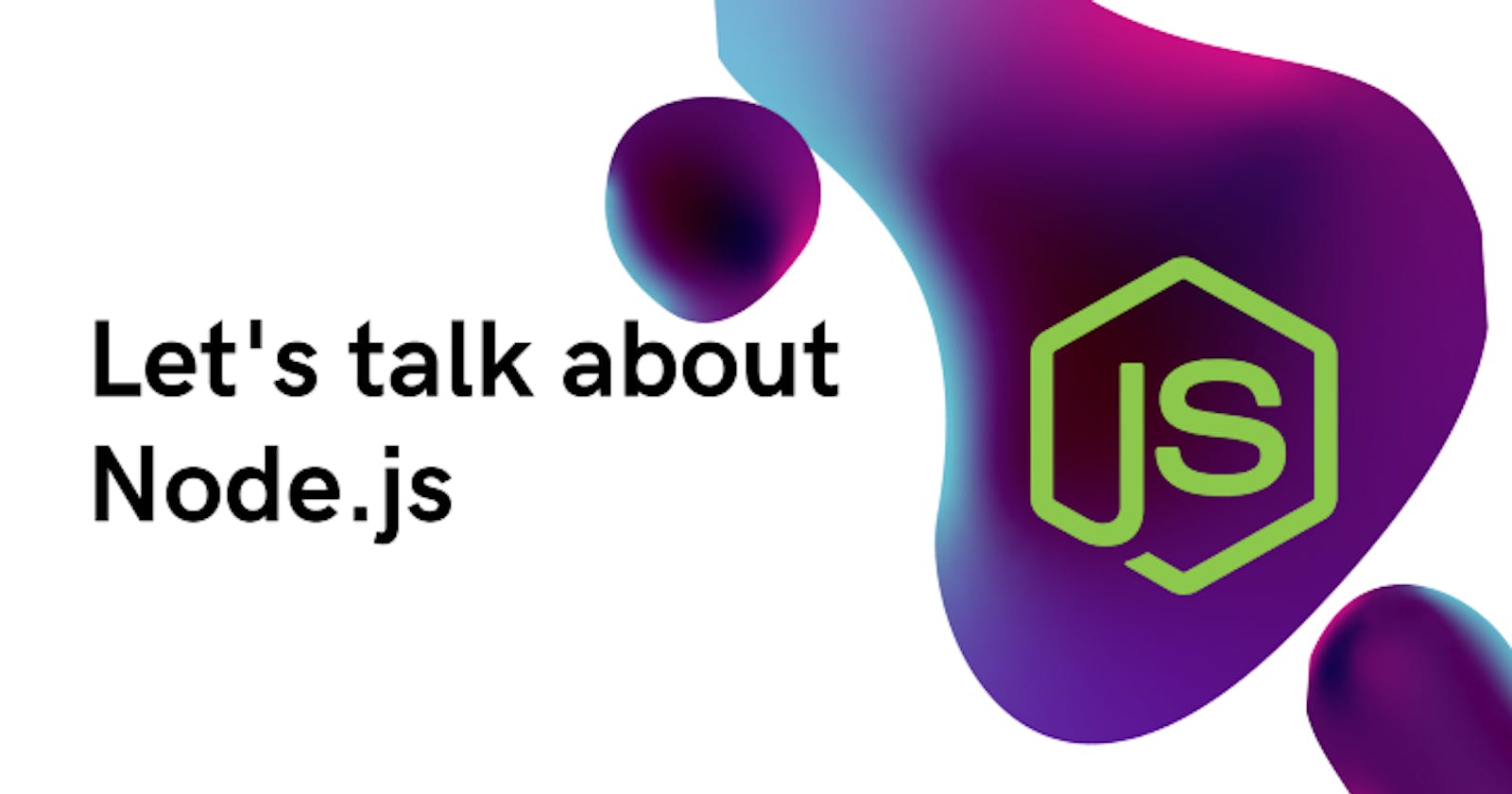What is Node.js ?
Node.js is a runtime environment for JavaScript. Node.js allows you to write server-side code with JavaScript that can make use of all the benefits of running on a single machine, as opposed to running in the browser and having limited access to the operating system's resources. Node.js is also built on Chrome's V8 JavaScript engine, which means it can take advantage of everything that the V8 engine has built-in (including many modules and libraries).It uses an event-driven, non-blocking I/O model that makes it lightweight and efficient. Node.js' package ecosystem, npm, is the largest ecosystem of open source libraries in the world.
Why should you learn it?
If you're a backend developer, learning Node.js is a no-brainer. It's efficient, it's fast, and it's easy to use.
Plus, with the rise of serverless architectures, Node.js is only going to become more popular. So if you're looking to stay ahead of the curve, learning Node.js is a smart move.
But even if you're not a backend developer, Node.js is still worth learning. Its popularity means that there are plenty of job opportunities out there for those who know how to use it.
And even if you don't want to work with Node.js specifically, learning it will give you a better understanding of how JavaScript works on the server-side, which can be helpful regardless of the language or framework you ultimately end up using.
Why use Node.js?
Node.js is a powerful JavaScript runtime that enables developers to build scalable, real-time applications. Node.js is fast, lightweight, and efficient, making it an ideal platform for developing web and mobile applications.
Node.js is based on an event-driven architecture that makes it easy to develop real-time applications. Node.js also offers a rich library of modules that makes development faster and easier.
If you're looking to build fast, scalable, and real-time applications, Node.js is the perfect platform for you.
Who uses Node.js?
Other than a lot of big companies including Netflix, Uber, Twitter, and PayPal, many startups also focus on using Node.js . If you're looking for a job as a web developer, learning Node.js will give you an edge over other candidates.
What are the Node.js build tools?
There are a few different build tools available for Node.js. The most popular ones are Gulp and Grunt. These tools help you automate tasks like minifying JavaScript files, compiling Sass or Less files, and more.
Using a build tool can save you a lot of time, and it's a good idea to learn how to use one if you're planning on doing any serious development with Node.js.
How to start with node.js?
Assuming that you have some basic knowledge of JavaScript, starting with Node.js is relatively simple. The first thing you need to do is install Node.js on your computer. Then, create a new file with a .js extension and start writing your code!
There are many resources available online to help you learn Node.js. The official Node.js website offers an excellent getting started guide, which walks you through the basics of setting up your development environment and writing your first Node.js program.
Once you have the basics down, there are endless possibilities for what you can build with Node.js. To get some ideas, check out the list of popular node modules on npm, the package manager for Node.js. There are modules for everything from web development to machine learning, so regardless of what you're interested in, there's likely a way to use Node.js to pursue it.
Conclusion
Overall, Node.js is a powerful tool that can help you build scalable and real-time applications. It's fast and efficient, and it's easy to learn if you're familiar with JavaScript. If you're looking to add another skill to your web development toolkit, Node.js is definitely worth considering.
Do let me know in the 𝗖𝗼𝗺𝗺𝗲𝗻𝘁 𝗦𝗲𝗰𝘁𝗶𝗼𝗻 if you have more 𝗼𝗯𝘀𝗲𝗿𝘃𝗮𝘁𝗶𝗼𝗻𝘀 about Node.js ! Follow me for more such articles that may find useful or relatable. If you like this article, do not forget to press that clap button! And connect with me on twitter.
